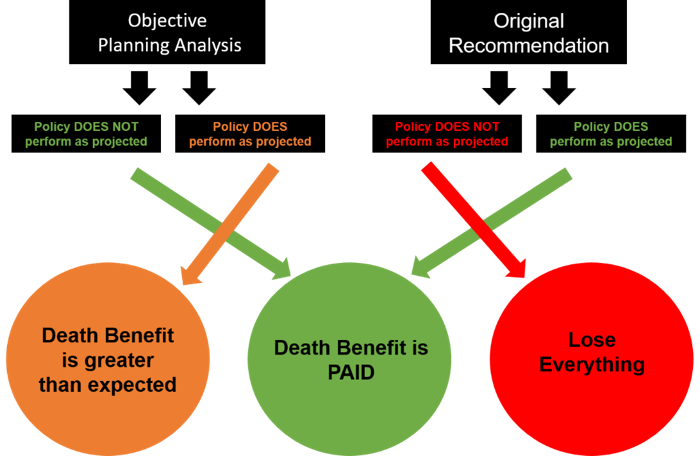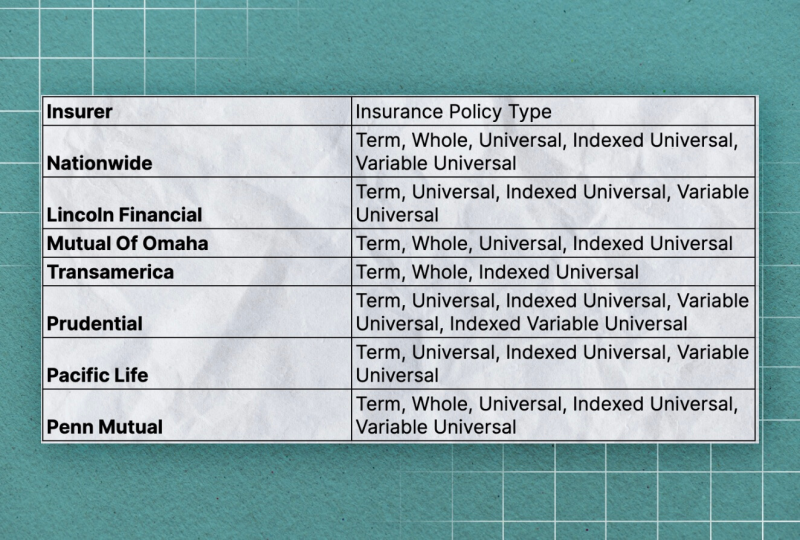All Categories
Featured
Table of Contents
1), frequently in an attempt to beat their category averages. This is a straw guy debate, and one IUL individuals love to make. Do they contrast the IUL to something like the Vanguard Total Amount Securities Market Fund Admiral Show to no lots, an expense ratio (EMERGENCY ROOM) of 5 basis factors, a turn over ratio of 4.3%, and a phenomenal tax-efficient document of circulations? No, they contrast it to some terrible proactively managed fund with an 8% lots, a 2% ER, an 80% turn over proportion, and a terrible document of temporary resources gain distributions.
Common funds often make annual taxed distributions to fund proprietors, even when the value of their fund has actually dropped in worth. Common funds not just require earnings reporting (and the resulting yearly tax) when the shared fund is increasing in value, however can also impose revenue tax obligations in a year when the fund has actually decreased in value.
That's not just how mutual funds work. You can tax-manage the fund, gathering losses and gains in order to reduce taxable distributions to the capitalists, however that isn't somehow going to alter the reported return of the fund. Only Bernie Madoff types can do that. IULs prevent myriad tax obligation catches. The possession of common funds might call for the common fund proprietor to pay approximated tax obligations.

IULs are simple to place to ensure that, at the proprietor's fatality, the recipient is exempt to either earnings or inheritance tax. The very same tax decrease methods do not work almost as well with common funds. There are numerous, often pricey, tax obligation catches associated with the moment trading of common fund shares, catches that do not put on indexed life insurance policy.
Opportunities aren't extremely high that you're going to be subject to the AMT due to your shared fund distributions if you aren't without them. The remainder of this one is half-truths at ideal. While it is real that there is no income tax obligation due to your successors when they inherit the proceeds of your IUL plan, it is also real that there is no income tax due to your heirs when they acquire a common fund in a taxable account from you.
Iul 7702
The government inheritance tax exemption restriction is over $10 Million for a pair, and expanding yearly with inflation. It's a non-issue for the huge majority of doctors, much less the remainder of America. There are far better methods to avoid estate tax issues than purchasing financial investments with low returns. Shared funds might cause revenue taxation of Social Safety advantages.

The development within the IUL is tax-deferred and might be taken as free of tax earnings through finances. The policy proprietor (vs. the mutual fund supervisor) is in control of his/her reportable earnings, therefore enabling them to minimize or perhaps get rid of the taxation of their Social Safety and security benefits. This is great.
Here's an additional very little problem. It's true if you purchase a mutual fund for state $10 per share prior to the distribution day, and it disperses a $0.50 circulation, you are then going to owe tax obligations (most likely 7-10 cents per share) regardless of the fact that you have not yet had any gains.
In the end, it's truly concerning the after-tax return, not just how much you pay in tax obligations. You're also probably going to have more money after paying those taxes. The record-keeping demands for possessing common funds are dramatically more complicated.
With an IUL, one's records are kept by the insurer, duplicates of yearly statements are mailed to the owner, and circulations (if any type of) are completed and reported at year end. This one is likewise kind of silly. Of program you must keep your tax obligation records in instance of an audit.
Iul Life Insurance Meaning
Barely a reason to acquire life insurance policy. Shared funds are commonly part of a decedent's probated estate.
Additionally, they undergo the delays and expenses of probate. The proceeds of the IUL plan, on the other hand, is always a non-probate circulation that passes outside of probate straight to one's called recipients, and is consequently exempt to one's posthumous financial institutions, undesirable public disclosure, or comparable hold-ups and expenses.
We covered this one under # 7, yet just to summarize, if you have a taxed common fund account, you must place it in a revocable count on (and even easier, utilize the Transfer on Death designation) to avoid probate. Medicaid disqualification and lifetime income. An IUL can supply their proprietors with a stream of earnings for their whole life time, despite how long they live.

This is useful when arranging one's affairs, and converting possessions to revenue prior to a retirement home confinement. Shared funds can not be transformed in a comparable way, and are often considered countable Medicaid possessions. This is one more dumb one promoting that bad individuals (you know, the ones who need Medicaid, a government program for the bad, to pay for their retirement home) should use IUL rather of common funds.
Index Universal Life Calculator
And life insurance policy looks terrible when compared fairly against a pension. Second, individuals that have money to get IUL over and past their retirement accounts are going to need to be horrible at handling money in order to ever qualify for Medicaid to pay for their assisted living facility costs.
Chronic and incurable ailment biker. All plans will allow a proprietor's easy accessibility to cash money from their policy, frequently waiving any kind of surrender fines when such people suffer a severe disease, need at-home treatment, or come to be constrained to a retirement home. Shared funds do not give a similar waiver when contingent deferred sales costs still apply to a shared fund account whose proprietor needs to offer some shares to fund the costs of such a stay.
What Is Guaranteed Universal Life Insurance
You get to pay more for that advantage (biker) with an insurance coverage plan. Indexed universal life insurance coverage offers fatality benefits to the beneficiaries of the IUL proprietors, and neither the owner neither the beneficiary can ever lose money due to a down market.
I definitely do not require one after I get to financial self-reliance. Do I desire one? On average, a buyer of life insurance pays for the true price of the life insurance benefit, plus the prices of the policy, plus the earnings of the insurance policy company.
Universal Life Problems
I'm not totally certain why Mr. Morais included the whole "you can't shed cash" once more right here as it was covered quite well in # 1. He just wished to duplicate the most effective selling point for these points I mean. Once again, you don't shed small dollars, however you can lose actual dollars, in addition to face serious chance cost due to low returns.

An indexed global life insurance coverage plan proprietor might trade their policy for a totally different policy without triggering income taxes. A mutual fund owner can stagnate funds from one mutual fund company to one more without selling his shares at the former (hence activating a taxable occasion), and buying new shares at the latter, commonly subject to sales fees at both.
While it holds true that you can trade one insurance plan for another, the reason that people do this is that the very first one is such a dreadful plan that also after purchasing a new one and going through the early, negative return years, you'll still appear in advance. If they were offered the appropriate plan the very first time, they should not have any need to ever trade it and experience the early, negative return years again.
Latest Posts
Iul Benefits
The Difference Between Whole Life And Universal Life Insurance
Cap Life Insurance